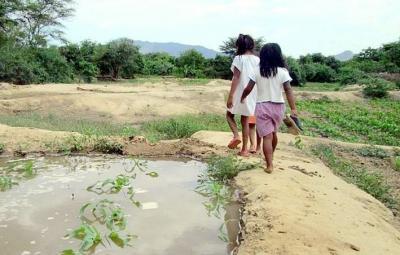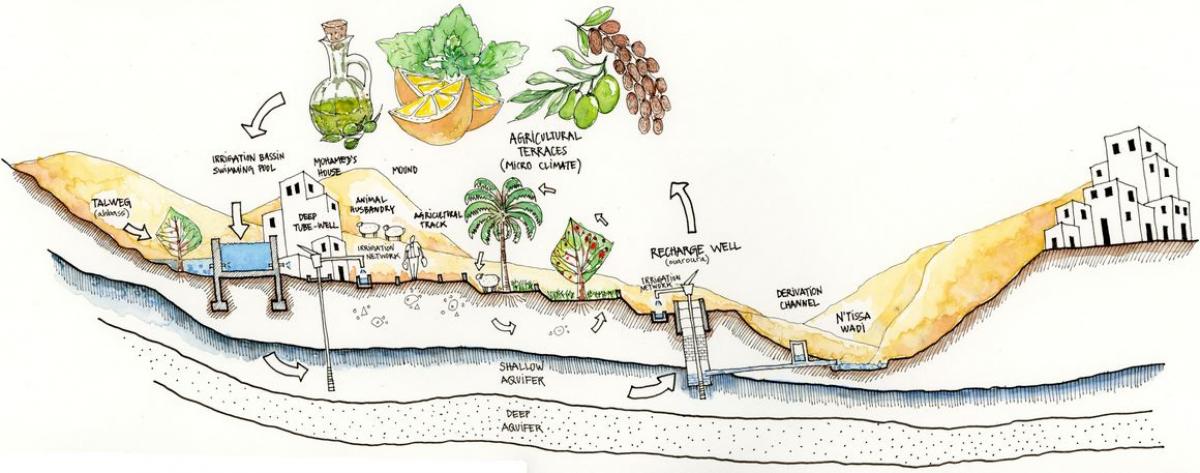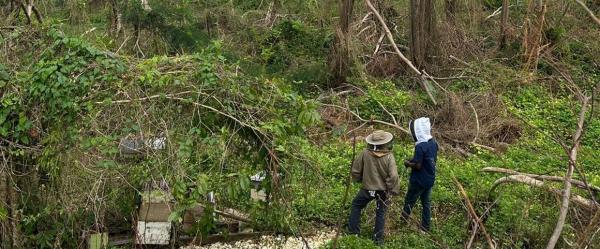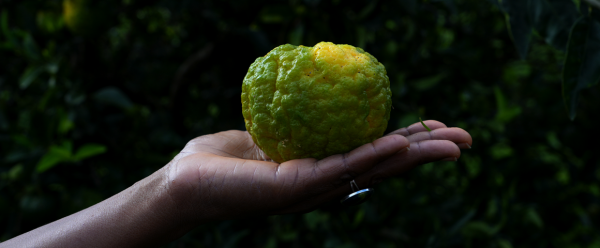Science at work 14 January 2026
- Home
- CIRAD news
- News
- Collective groundwater management - T2GS project
When rural communities (re)invent groundwater management
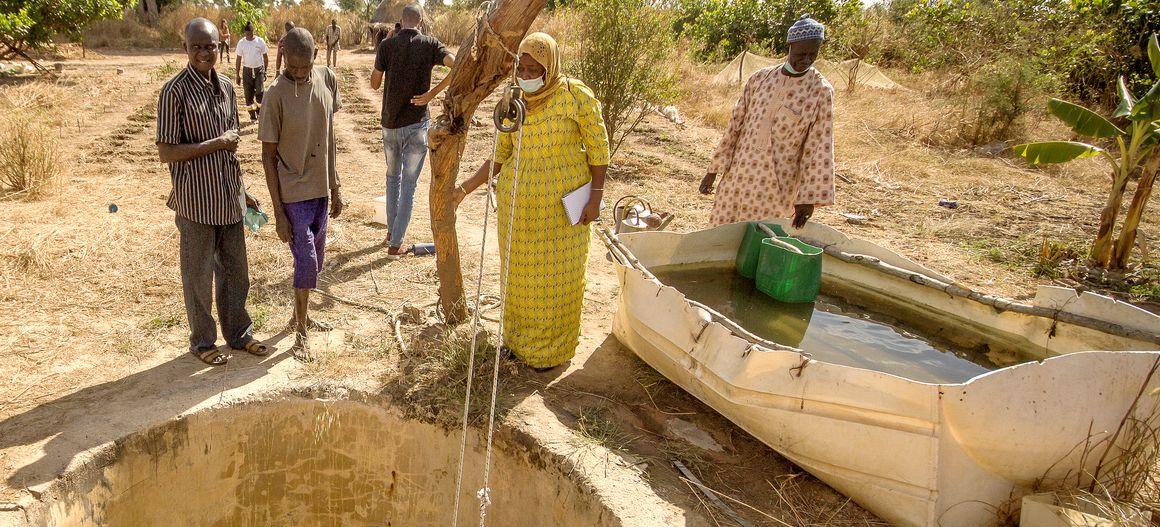
Sustainable use of groundwater depends on collective management of the resource © R. Belmin, CIRAD
“Groundwater is difficult to manage, since the resource is invisible”, says Marcel Kuper, a researcher specialising in water science at CIRAD. “Its overexploitation is not noticed immediately. Controlling who has access to it is also a real challenge. Faced with this difficulty, several rural communities are designing aquifer recharge systems, while imposing a set of collective rules. And this process is working”.
Collectively establishing the rules
The T2GS* project (Transformations to Groundwater Sustainability) studies and assesses these local initiatives. After a year and a half of fieldwork among rural communities in India, Algeria, Morocco, Tanzania, Zimbabwe and Peru, the scientists have presented their first findings. The solutions are not to be found in the individual control of water use, or in an increase in water supply, but in the collective management of groundwater resources.
“The overexploitation of groundwater raises two major problems”, says Marcel Kuper. “First, the depletion of the resource increases inequalities, as access to water is reduced for some people. Second, the degradation of aquifers jeopardises their use by future generations”. The objective of T2GS is to measure the capacity of several initiatives to reduce tension between individual and collective interests, as well as between short-term gains and longer-term sustainability.
From India to Algeria
In the village of Randullabad in India, local people have thus developed infrastructure to recharge the aquifer through rainwater infiltration. At the same time, the community has established a whole set of rules based on water saving. For example, no individual wells are allowed, only shared wells. The priorities are also defined collectively, such as the precedence of domestic water over agricultural water: wells providing drinking water are therefore designed to be deeper than those providing water for irrigation.
In Ghardaïa in Algeria, farmers have addressed the depletion of groundwater by bringing back a traditional aquifer recharge system and focusing on water saving practices. In order to maintain competitive agricultural activity, some farmers are turning to organic farming and short supply chains, while others are developing high market value crops, such as saffron.
The technologies that act on our perceptions
For the members of the T2GS project, technologies, far from being simple tools to access the resource, maintain certain perceptions concerning people-water relations.
“In Zimbabwe, we are studying differences between people who use electric pumps and those who collect water using manual pumps”, says Marcel Kuper. “We have noted that the fact that electric pumps are powerful and silent means people are unaware of the depletion of groundwater. On the contrary, people using diesel motor pumps or hand pumps quickly notice the difference, since they have to pump for longer”.
For shared access to water
In addition to their impact on the visibility of groundwater depletion, technologies also influence the establishment of collective rules. “How can we make common rules acceptable to people who use water in an individual manner?”, asks Marcel Kuper. The use of individual boreholes makes it particularly difficult to ensure acceptance of common restrictions. Shared wells, on the other hand, make it easier to gauge the level of aquifers and also highlight the importance of collective action and the sharing of scarce resources.
Local and scientific knowledge on the same level
One of the challenges of T2GS is to erase the boundary between scientific knowledge and that of local people and artisans. Without questioning scientific knowledge, one of the goals of T2GS is to debate it along with local know-how, with a view to mutual enrichment.
In Randullabad, NGOs and scientists have thus worked to identify the most suitable areas for rainwater infiltration, in synergy with the field knowledge of local people. In Ghardaïa, modern aquifer recharge infrastructure has been inspired by centuries-old infrastructure designed by the communities over many years of practice.
In addition to the plurality of knowledge, the T2GS participants also stress the importance of transdisciplinarity in research. While hydrology is necessary to work on access to groundwater, alone it is never enough to design just and sustainable governance systems.
* T2GS is financed by the The French National Research Agency (ANR), via the programme “Transformations to sustainability” by the Belmont Forum and Norface.
Reference
Margreet Zwarteveen, Marcel Kuper, Cristian Olmos-Herrera, Muna Dajani, Jeltsje Kemerink-Seyoum, Cleaver Frances, Linnea Beckett, Flora Lu, Seema Kulkarni, Himanshu Kulkarni, Uma Aslekar, Lowe Börjeson, Andres Verzijl, Carolina Dominguez Guzmán, Maria Teresa Oré, Irene Leonardelli, Lisa Bossenbroek, Hind Ftouhi, Tavengwa Chitata, Tarik Hartani, Amine Saidani, Michelaina Johnson, Aysha Peterson, Sneha Bhat, Sachin Bhopal, Zakaria Kadiri, Rucha Deshmukh, Dhaval Joshi, Hans Komakech, Kerstin Joseph, Ebrania Mlimbila and Chris De Bont. 2021. Transformations to groundwater sustainability: from individuals and pumps to communities and aquifers. Current Opinion in Environmental Sustainability

























